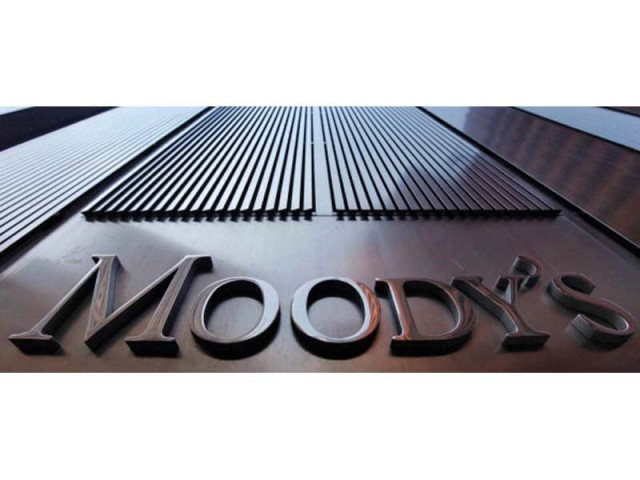Economic revival only running in first gear
Positive accounts of economy are true, but only present one side of the picture

Positive accounts of economy are true, but only present one side of the picture. PHOTO: REUTERS
There are by and large two types of accounts about Pakistan’s recent economic situation — both seem poles apart.
One group comprises of Moody’s and Fitch credit rating reports, IMF’s nods of approval and Forbes’ famous article ‘Pakistan is doing well, has come out of crisis, ready to take off.’ Additionally, there are factors such as the $46-billion Chinese largesse, which has started flowing into the country and certainly improving investment prospects.
These positive accounts, which are not incorrect, give our economic managers a deceptive comfort level.
The other more sceptical group consists of a totally different view of the economy, usually depicted in long-term structural and institutional assessments. Take the World Bank’s Doing Business report, World Economic Forum’s report on state of competitiveness or the more recent Economic Freedom of the World report issued by Fraser Institute Canada.
All these reports give a thumbs down to Pakistan’s economic managers. For them, the country’s economy is not competitive, is largely in the clutches of the government which itself is not ready to reform the way it governs. What is worse, these reports are indicating a decline over 2013-2015.
Read: Eighth review of Extended Fund Facility: Pakistan, IMF to meet next week
The Fraser’s Institute report kept Pakistan at 124 out of 167 countries — the same place it earned in 2013. The 2015 Doing Business report of the World Bank scored down Pakistan from 107 out of 185 countries to 128. The World Economic Forum’s Global Competitiveness Index brought Pakistan down to 129 in 2014-15 from 124 in 2012-13.
Isn’t then something which the enthusiastic and hard-working economic ministers missing while celebrating their achievements? Is the ladder they are moving on standing against the wrong wall?
Identifying the problem
Pakistan’s federal economic governance is distributed across 10 ministries. These include Ministries of Finance, Planning, Commerce, Industries, Textiles, Communication, Railways, Information Technology, Petroleum & Natural Resources, and Water and Power.
To unlock Pakistan’s own economic potential, these 10 economic ministers must deliberate on a reform agenda. What should be their agenda? How can Pakistan improve its ranks in the comity of nations?
Undertake energy pricing reforms (which is not exactly what IMF’s cost driven prescriptions suggest), taxation reforms (which is not about tax to GDP ratio, rather it is about making taxes easy, fair and flatter), bring down tariffs across board (and shun SROs), bring down revenue deficit to zero, divert commercial credit to private sector, and help businesses formalise.
However, to deliberate these reforms, the 10 economic ministers must shun fire fighting for a little while and draw a clear roadmap.
Read: Significant progress achievable: IMF
We need a fundamental transformation if we want Pakistan to move up the ladder of economic development. All institutional assessments of the economy are very clear about what needs to be fixed. Re-set policies, redefine processes. State role back is direly needed. However, the indications are contrary.
Policy errors
The upcoming trade policy fails to introduce reforms and offers the same package to exporters, which is bound to meet the same fate. The upcoming auto policy is no better. The planning commission has not come up with a clear growth strategy, though it does have a Vision 2025 as a useful overarching document.
The reforms discussion is what the types of IMF, Forbes or Moody’s either deliberately miss or gloss over. They are generally happy with a government that improves current account deficit, reduces fiscal deficit, and improves its external accounts. Their prism is largely the prism of a lender, both of a government or corporate type, and not of a business investor.
The finance minister should embrace these critical reports with an open mind and should consider them as prisms through which the world business community looks at Pakistan. He should be assured that Moody’s positive rating (which is still below investment grade) is only beneficial for financial markets, bonds managers and portfolio investors. For these reports, Pakistan’s business environment means little. They can be helpful for a new successful Euro bond, a target which the government is again set to achieve, however, they provide little perceptive regarding the overall economic growth.
While Pakistan will benefit from the Chinese investment and stable currency on the back of rising reserves, it will continue to look for similar external factors for economic revival. More than anyone else, the Prime Minister must see economic reforms as the only strategy of growth, which he boldly started 25 years ago, a track which his country has long disbanded.
Read: IMF approves release of $501.4 million to Pakistan
The writer is founder and Executive Director of PRIME Institute, an independent think tank based in Islamabad
Published in The Express Tribune, September 28th, 2015.
Like Business on Facebook, follow @TribuneBiz on Twitter to stay informed and join in the conversation.



















COMMENTS
Comments are moderated and generally will be posted if they are on-topic and not abusive.
For more information, please see our Comments FAQ